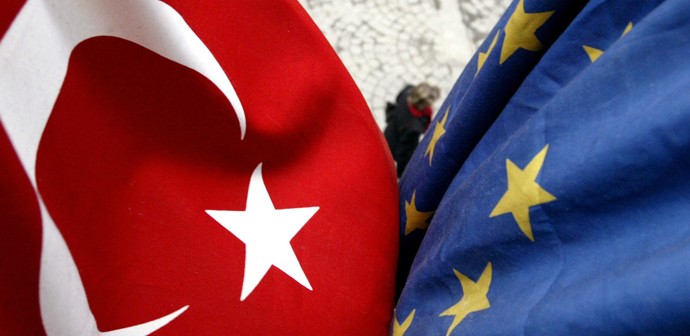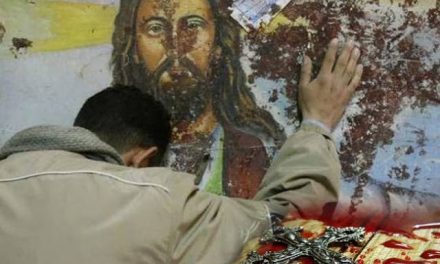By Cengiz Aktar, Ahval
It is safe to say that in the history of European Union enlargement, starting in 1973 with the accession of Britain, Denmark and Ireland, the most spectacular failure is the candidacy of the Republic of Turkey.
Europeans finally took note of the state of Turkey’s accession negotiations in the concluding statement of the European Council of June 26 last year, which declared : “The Council notes that Turkey has been moving further away from the European Union. Turkey’s accession negotiations have therefore effectively come to a standstill and no further chapters can be considered for opening or closing and no further work towards the modernisation of the EU-Turkey Customs Union is foreseen.”
Indeed, there is in Europe a large consensus that Turkey complies with none of the required criteria pertaining to the EU candidacy, even less to the status of a negotiating country. Nevertheless, the EU has so far been incapable of formally suspending negotiations. There are several reasons.
Firstly, the Europeans do not really know how to deal with a failed candidacy, as it has never happened before; like Brexit, it is an unprecedented event.
Secondly, rupture is not in the European political culture. The Europeans prefer to keep all lines of communication open, despite all the odds.
Thirdly, the strategic concerns whereby a Turkey pivoting away from post-1945 European and Atlantic institutions to end up in the laps of Moscow, is a quite undesirable scenario. Europeans do not want to add oil to the fire by cutting Turkey’s ties to the EU.
Fourthly, there is the tactical concern that Turkey continue to police its western borders to impede refugees from crossing into the EU and stick to its March 2016 agreement with the EU, a deal that is considered to be very successful in Brussels.
And fifthly, there are economic interests. Europeans, bilaterally and multilaterally have sizeable industrial, commercial and financial stakes in Turkey. They are anxious not to lose money by further antagonising the Turkish regime.
Thus, the EU not only refrains from officially suspending accession negotiations, it also continues to cajole the Turkish regime by systematically trying to ease tensions and “understanding” Ankara’s repression and anti-democratic deeds.
The European lexicon has a new euphemism to describe the EU’s relations with Turkey. It is called a “key partner” or a “strategic partner”. Its importance relates to migration, the fight against terrorism, energy cooperation and economic interests.
Let us evaluate how accurate and fruitful the new policy is.
European concerns regarding Ankara’s shift towards Moscow need to be re-evaluated. Turkey has long been the odd man out in NATO, but its decision to purchase Russian S-400 air defence missiles increases the divide and goes against the alliance’s unwritten rules.
In other words, keeping Turkey close to Europe does not keep away from Moscow.
Within the framework of strategic interests, anti-terror cooperation with Ankara is probably most ludicrous of all, as Turkey is widely reported to be one of the privileged nests of Islamic State (ISIS). Anti-terror cooperation with Ankara remains at best wishful thinking.
Turkey is also supposed to develop good relations with its neighbours, especially Cyprus and Greece. Recalling the endless threats Ankara issues against its EU neighbours, the results look quite meagre.
As for the refugee policing, although the 2016 deal is a success compared to the flood of migrants in summer 2015, the waves continue through Greece, as Syrians, Afghans and Iraqis have no real future prospects in Turkey. European countries now also need to tackle the inflow of Turkish refugees as a consequence of the repression in Turkey.
Let us now turn to the most critical field of partnership, the economy, including energy cooperation. Let us start with the latter. Who still remembers the EU-funded Nabucco pipeline that was designed to be an alternative to Russian gas by carrying Azeri and Turkmen gas to Europe via Turkey, the Balkans and Austria? It never came about due to the joint actions of Ankara and Moscow. Instead, the TurkStream pipeline is to become operational at the end of 2019 and will not end the EU’s dependence on Russian gas.
Although Turkey would be the best route to carry the gas from the eastern Mediterranean to the EU, Ankara has so far showed its opposition by claiming to be the legitimate owner of the seabed surrounding Cyprus.
Europeans have sizeable investments in Turkish industry. Of the reported 180 billion euros of foreign direct investment in Turkey, some 75 percent is of EU origin. EU countries are by far the largest investors in Turkey. There are 22,000 foreign companies entirely or partially controlled by EU capital operating in Turkey, of which 7,000 are German, 3,000 British and 2,800 Dutch.
The 2017 volume of trade in goods between Turkey and the EU was worth 154 billion euros and corresponded to 4.1 percent of EU’s total trade. European Investment Bank loans exceed 30 billion euros, those of the European Bank for Reconstruction and Development hover around 11 billion euros. The World Bank, as well as the Council of Europe’s Development Bank, is fully involved in extending cheap credit to Turkey thanks to its status as a country negotiating for EU membership. National lending institutions have also loaned billions to Turkey, like France’s AfD and Germany’s KfW. Europeans are keen to preserve their assets, to keep business going and to avoid the wrath of Turkish President Recep Tayyip Erdoğan, which might jeopardise their holdings.
But the EU policy of “seeing no evil, hearing no evil, speaking no evil” at a time when the rule of law is constantly being eroded in Turkey could put their assets at risk in the medium-term. And secondly, their economic largesse mostly ensures the Turkish regime’s longevity. Europeans, particularly through the financing of big infrastructural projects and arms sales, are lending a precious helping hand to Erdoğan as these unecological and inhumane deals create jobs, fuel nationalism and buttress the regime.
Unless accession negotiations are severed once and for all, thereby announcing to the international business community that Turkey will never become an EU member, the illusion of eventual membership will continue to be an incentive for investment.
Similarly, the advantaged status of “negotiating candidate country” provides vast opportunities to the candidate for borrowing from EU bodies and international financial institutions. To pretend that negotiations are proceeding when they are not, keeps the credit lines open to Erdoğan’s totalitarian regime.
Finally, it is obvious that such brinkmanship is unsustainable and we need a paradigm shift to reflect upon the post-candidacy era of Turkey-EU relations. It is well known that big bureaucracies take time to change policy. Perhaps the incoming European Parliament and the new European Commission will hasten the cutting of the Gordian Knot by the Member States.



















